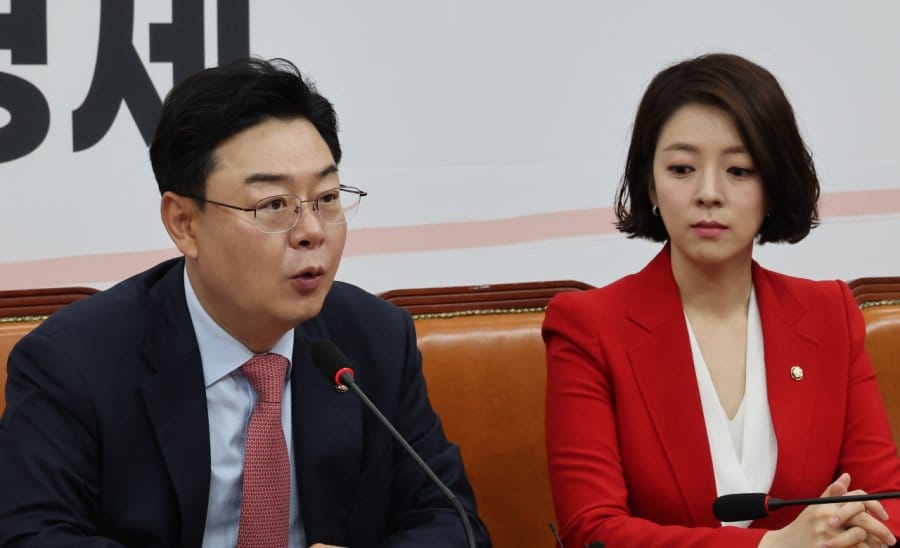May 17, 2023
SEOUL – South Korean politicians on Tuesday launched a complete investigation of the virtual asset holdings of all National Assembly lawmakers amid a widening scandal involving their alleged murky possession or transfers of cryptocurrencies.
The floor leaders of the ruling People Power Party and the main opposition Democratic Party of Korea are in talks to have each lawmaker voluntarily disclose of their current crypto asset holdings immediately regardless of the lack of mandatory disclosure rules, Rep. Kim Sung-won of the ruling People Power Party told reporters Tuesday at the National Assembly.
Kim leads a special team of PPP lawmakers that will look into the crypto transfers of all lawmakers and consider legal action if they find suspicious crypto-related activities. Such meetings are to be held twice a week starting Tuesday.
Another member of the PPP team, Rep. Yun Chang-hyun, said they will consider on-site inspections of cryptocurrency industry players such as exchange operators Upbit and Bithumb, as well as gaming firm WeMade, which issues cryptocurrency Wemix.
Relatedly, belated bipartisan moves to revise the Public Service Ethics Act have been underway since last week in order to force lawmakers and public officials to register and disclose their crypto assets in a mandatory filing to prevent conflicts of interest.
Concerns about the ethics of politicians’ crypto holdings have come to the fore as Rep. Kim Nam-kuk, a lawmaker formerly of the main opposition party, was found to have possessed Wemix assets — once worth over 8 billion won ($5.98 million) at their height — since January 2022.
Kim had converted these assets into other cryptocurrencies just before the “travel rule” aimed to prevent crypto investors from money laundering came into effect in March 2022. These transactions were made via Upbit and Bithumb.
This situation contradict Kim’s disclosure of 1.26 billion won in assets filed in 2022, meaning that the former assets were not disclosed to the public during the mandatory disclosure. His assets were reported as 1.53 billion won in 2023. Kim has claimed that there was no violation of law in his failure to disclose his crypto assets, but has not identified where the funds to obtain the assets originated from.

Rep. Kim Sung-won, who leads the ruling People Power Party’s crypto asset investigation team, speaks at a team meeting Tuesday. (Yonhap)
The legal status and features of cryptocurrency have allowed the attorney-turned-lawmaker to take advantage of a grey area in Seoul’s legal frameworks for crypto assets and to avert the full disclosure of his assets.
What upped the ante were recent revelations that Kim had received crypto assets for free as marketing airdrops. This triggered speculations that Kim might have been illegally lobbied by unidentified entities.
Kim admitted that he was given free crypto assets but denied speculations that he had been bribed.
Kim has been facing harsher public criticism over this possible conflict of interest, with the revelation that he was one of the lawmakers who proposed the bill to defer taxation of crypto investors in 2021. The bill became law effective beginning in 2025.
He is also suspected of having traded cryptocurrency during a parliamentary committee meeting in November.
Kim left the party Sunday a few days after party leader Rep. Lee Jae-myung extended a public apology and launched an ethics audit of Kim, triggering doubts about the validity of such an audit on him as he is no longer a party member.


